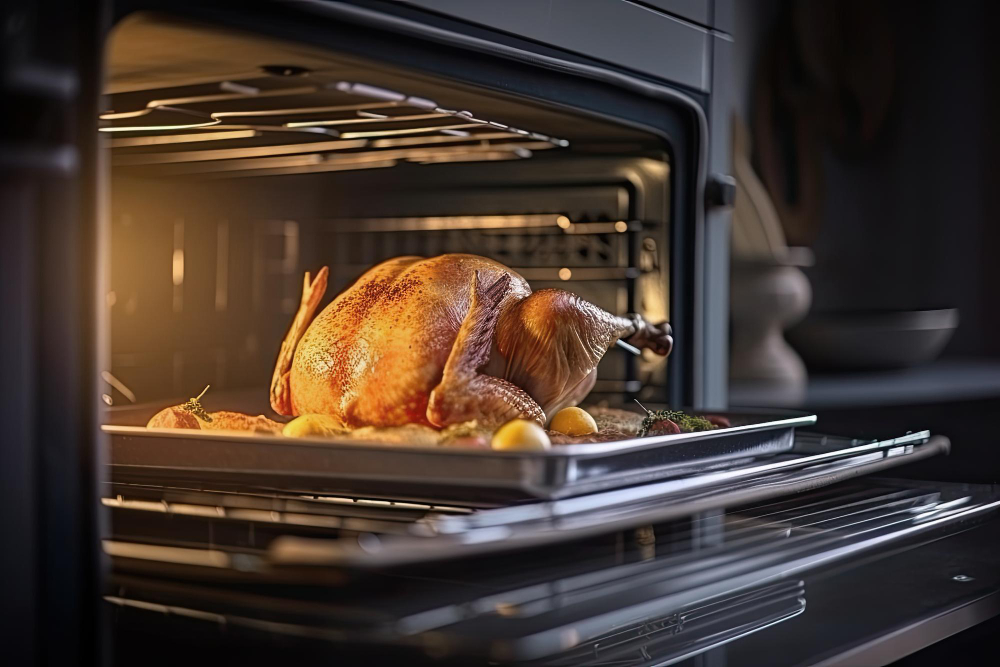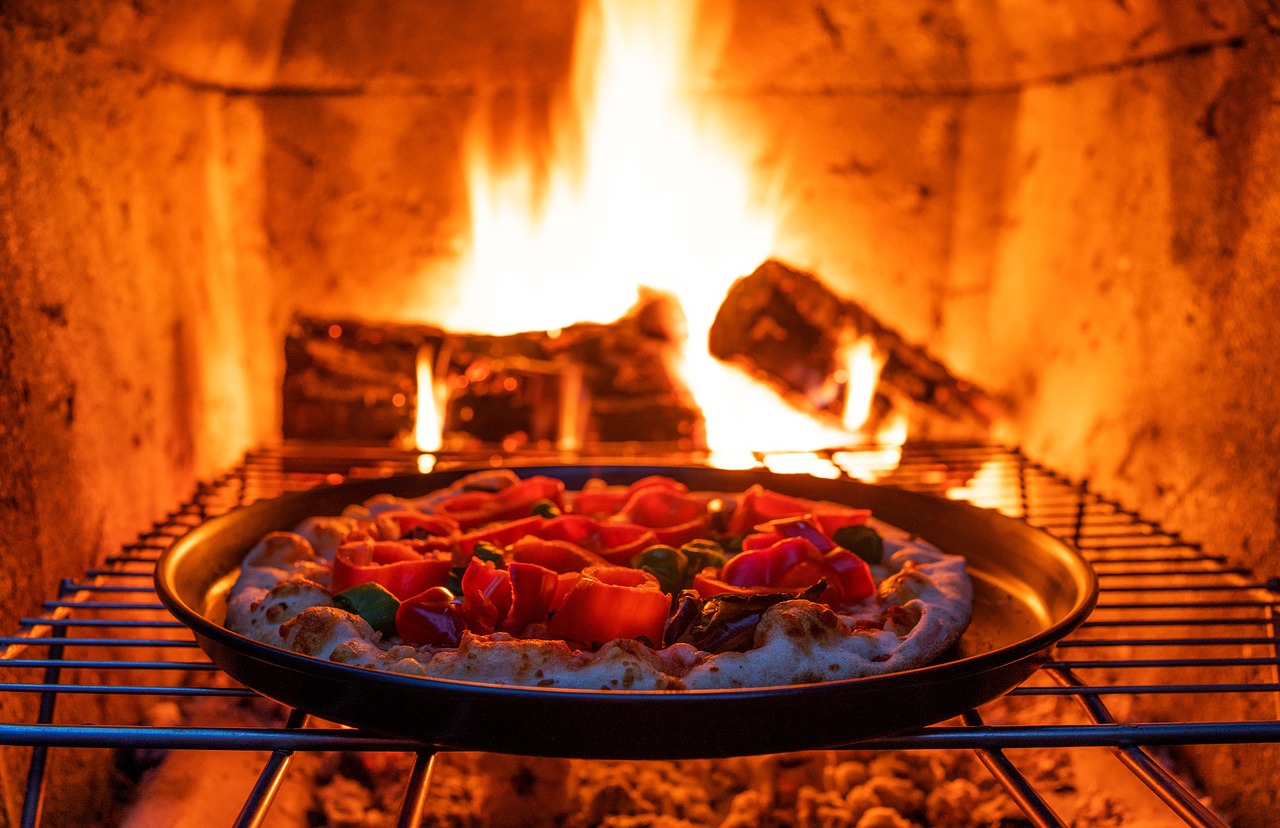Preventative Measures to Extend the Life of Your Oven
You’ve splurged on that dream oven, now it’s time to make it last. Don’t worry, it’s not as daunting as it sounds. With a little TLC, you’ll extend your oven’s lifespan and keep it in prime condition.
Whether it’s cleaning, maintenance, or dealing with common issues, we’ve got you covered. So, let’s dive in and find out how you can get the most out of your oven.
Regular Oven Cleaning Tips
To keep up with your oven’s maintenance, you’ve got to stick to a regular cleaning routine, which not only ensures hygiene but also prolongs its lifespan.

Baking soda remedies are a perfect solution. They’re cheap, effective, and non-toxic. You simply create a paste of baking soda and water, apply it to the oven’s interior, and let it sit overnight. The next day, you’ll just wipe away the grime. No toxic fumes, no harsh scrubbing. It’s a win-win.
If you’re looking for other non-toxic cleaners, vinegar is another great choice. A vinegar and water solution can tackle tough spots and leave your oven sparkling.
Regular cleaning’s not a chore, it’s an investment in your appliance’s longevity. Regular maintenance saves you from costly repairs or replacements down the line.
Proper Oven Use and Maintenance
In maintaining your oven’s lifespan, it’s critical that you understand how to use and maintain it properly. Understanding the importance of oven ventilation is key. It helps regulate temperature, prevents overheating, and enhances energy-efficient usage. Always ensure your oven’s vents aren’t blocked to allow for optimal airflow. It’ll not only cook your food evenly but also minimize energy consumption.
Next, make sure you’re using energy-efficient settings. For instance, use the fan-forced option for multi-shelf cooking, saving energy by reducing the need for high temperatures. Regular maintenance checks are also essential. If you notice any irregularities, don’t hesitate to call a professional.
Importance of Self-Cleaning Feature

With regular use, your oven can accumulate grime and grease, but thanks to the self-cleaning feature, you’re able to tackle this issue effortlessly. This feature heats your oven to high temperatures, turning food residue into ash, which you can easily wipe away.
However, be aware of potential self-cleaning hazards. The process can produce smoke and fumes, so it’s important to ventilate your kitchen properly.
Despite these risks, the benefits of self-cleaning are clear. It saves you from manual scrubbing and keeps your oven functioning efficiently.
Speaking of efficiency, the self-cleaning cycle does require a significant amount of energy, which can impact your energy bill. However, regular cleaning maintains your oven’s energy efficiency, offsetting any potential cost increases.
Professional Oven Servicing: When and Why
Despite the benefits of the self-cleaning feature, there are instances when you’ll need to call in a professional for oven servicing to keep it running at its best. Servicing costs can vary, but investing in regular maintenance can save you from costly repairs down the line. You’ll typically need professional servicing if your oven isn’t heating correctly, the door isn’t closing properly, or if there’s a noticeable drop in performance.
Remember to check your warranty benefits before calling a professional. Some warranties cover routine servicing and specific repairs, which can drastically reduce your out-of-pocket costs.
Dealing With Common Oven Problems
Handling common oven problems yourself can be a great way to extend your appliance’s life and save on professional servicing costs. Learning troubleshooting techniques can be a game-changer.

Is your oven not heating properly? Check the heating elements. It could be as simple as needing replacement parts.
Maybe you’re experiencing uneven cooking? It could be a fan issue. Before you panic, try adjusting the oven’s temperature settings.
Remember, not all problems require a professional. Sometimes, it’s a matter of regular maintenance and a keen eye. So, don’t be afraid to get your hands dirty.
Prevention is key, and dealing with these issues early on can help you avoid costly repairs down the line.
Frequently Asked Questions
What Are Some Safe, Eco-Friendly Cleaning Products to Use on My Oven?”
You can use natural degreasers like vinegar and baking soda as eco-friendly cleaning products for your oven. They’re safe, effective, and you can even make homemade solutions with them.
Can Using Certain Types of Cookware Damage My Oven Over Time?”
Yes, certain cookware materials can damage your oven. Prolonged utensil usage of cast iron or glass can cause scratches or marks. You should avoid using overly heavy or sharp objects in your oven to prevent such damage.

Does the Type of Food I Cook Affect the Longevity of My Oven?”
Yes, the type of food you cook can affect your oven’s longevity. Utilizing oven temperature control and practicing food spillage prevention can help. Foods prone to spillovers can cause damage and decrease oven lifespan.
How Does My Oven’s Energy Efficiency Impact Its Lifespan?”
Your oven’s energy efficiency directly impacts its lifespan. Efficient maintenance reduces energy consumption, leading to less wear and tear. So, you’re not just saving energy, but also extending your oven’s life.
What Are the Signs That My Oven May Need to Be Replaced Rather Than Repaired?”
If you’re noticing uneven cooking, excessive noise, or non-responsive controls, your oven may need to be replaced. Consider oven maintenance costs versus replacement cost before making a decision. It’s all about smart budgeting.

Conclusion
So, maintaining your oven isn’t rocket science. Regular clean-ups, correct usage, and timely professional servicing will do the trick.
Don’t overlook the self-cleaning feature, it’s a lifesaver! Remember, small issues can turn into significant problems if left unchecked.
Now you’re equipped with the knowledge to keep your oven in tip-top shape for years to come.
Happy cooking!
